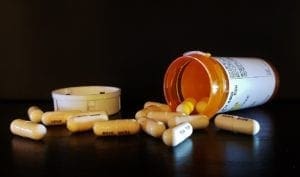Drug War Makes Criminals Out of California Physicians
This article was featured in our weekly newsletter, the Liberator Online. To receive it in your inbox, sign up here.
To those who are born and raised in the City of Angeles, stories of violence set in motion due to poorly written drug and health-related laws aren’t particularly unique.
 Over the decades, Southern California has been in the news over instances of police brutality against minorities, wrongful killings by the police, deadly gang fights, and police union scandals. Los Angeles has also been the backdrop of countless gangster rap songs and videos, as well as the actual setting of several real life criminal conspiracies, so it’s not a surprise that even physicians are now being arrested for working directly with drug gangs.
Over the decades, Southern California has been in the news over instances of police brutality against minorities, wrongful killings by the police, deadly gang fights, and police union scandals. Los Angeles has also been the backdrop of countless gangster rap songs and videos, as well as the actual setting of several real life criminal conspiracies, so it’s not a surprise that even physicians are now being arrested for working directly with drug gangs.
According to a local NBC affiliate, two doctors working out of the Lynnwood area in South Los Angeles were arrested and charged for selling prescription drugs “without medical purpose.” The two physicians surrendered to federal authorities this past Friday and were later released on bond after appearing on court.
They were allegedly linked to gang members who were also arrested on the same day.
The United States Attorney’s Office’s Central District of California claimed that both physicians were “significant suppliers of drugs to a street gang.” Some of the drugs they allegedly helped gang members obtain include Vicodin, which is also known as Norco, Xanax, and Soma. The opioids, psychoactive, and barbiturate-like drugs were all prescribed “at or near maximum strength,” the report states.
One of the charged physicians was allegedly involved in these transactions between 2011 and 2015. The second doctor was accused of signing purposeless prescriptions in 2014 and 2015.
While the operation that led detectives to the gang members associated with the Lynwood doctors targeted East Coast Crips involved in California burglaries, officers looked into the relationship between the physicians and gangsters after learning that both doctors “served as large-scale sources of supply to [gang] members and associates.”
The doctors were allegedly caught after a series of undercover operations, meaning that officers or cooperating witnesses approached both physicians asking for these prescriptions. In most cases, officials stated, doctors failed to examine patients.
As the nation goes through one of its toughest drug epidemics in history, putting countless of drug users and addicts in morgues over tainted batches of opioids, stories like these remind us that, if there’s a market, even if the demand is for something considered illegal, there will always be someone willing to break the rules. Why? Because financial incentives often push otherwise decent people into breaking the law.
Even gang members are drawn into a life of crime over the promise of high turnouts for little work, even if the risks are also high. They might have never wanted to be part of a criminal gang, but when faced with the decision of becoming rich fast—even if it’s just a promise—they change their minds.
In a free society, these incentives also exist, but without prohibition, addicts and those who provide them with their drug of choice have freedom to do so in a peaceful manner. In the black market sprung out of prohibition, gangs use force to maintain contracts and fight over territory. They are also not worried about branding, making it easy for them to set morals aside to produce bad batches of whatever drug customers are after. In a free market setting, the opposite is true.
Also, addicts are more likely to be safe in an environment where drug consumers aren’t stigmatized. In a free society untainted by prohibitionist laws, drug users are more likely to look for help. Under the current laws, addicts are often afraid of being arrested—for a good reason. This fear pushes them deeper into their addiction, and the consequences are often deadly since they often become dealers themselves to sustain their habit.
Compassion can only exist in a society where people are free to develop their own sets of values. When forced upon us, morals are ignored. But when all we have is freedom, consumers and their welfare hold the key to good business practices.
Why make criminals out of inner city kids and doctors when you can put an end to the drug war?




















